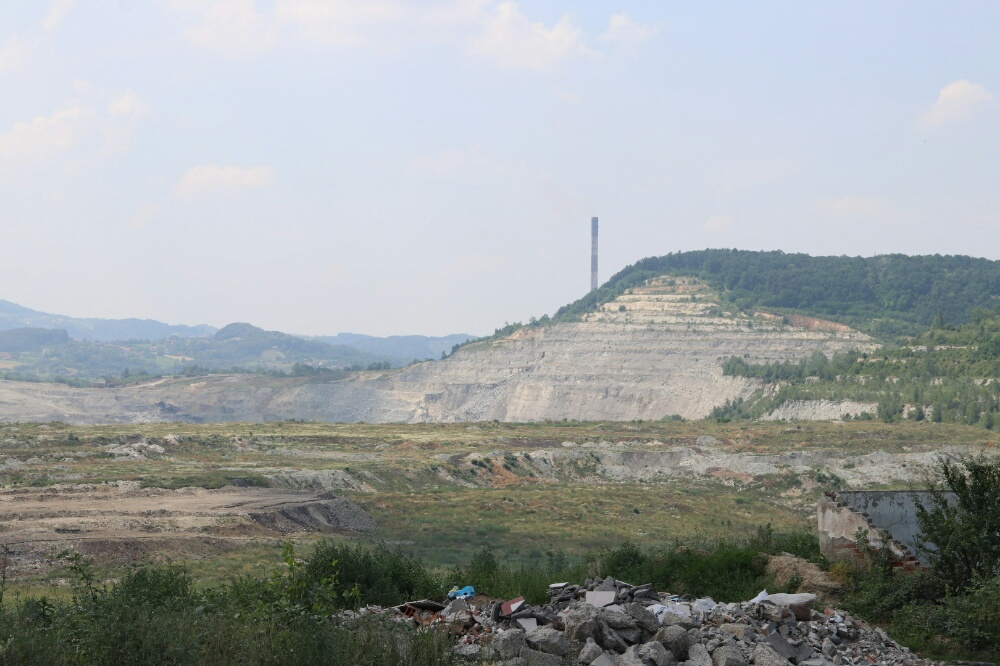In an administrative dispute initiated in February 2023, the District Court in Banja Luka issued a decision on December 29th, 2023, by which it fully accepts the lawsuit filed by the Center for Environment (hereinafter: the Center) and annuls the Environmental Impact Assessment Study issued by the Ministry of Spatial Planning, Construction, and Ecology (hereinafter: the Ministry) for the planned thermal power plant “Ugljevik 3” (hereinafter: TPP “Ugljevik 3”).
This is the second judgment in favor of the Center, meaning the second judicial annulment of the disputed Environmental Impact Assessment Study (hereinafter: EIA) which was approved for this private project, which the Government of Republika Srpska unilaterally declared as a project of general interest in 2014.
In an earlier legal proceeding, the decision approving the EIA was already annulled due to significant procedural violations, specifically the inconsistent conduct of cross-border consultations with neighboring countries affected by the adverse effects of TPP “Ugljevik 3,” i.e., air pollution. As the Ministry did not conduct cross-border consultations in accordance with the court’s legal instruction in the repeated procedure, it resulted in the reapproval of the EIA without a genuine consideration of objections from the public in neighboring countries, contrary to domestic regulations and the Espoo Convention.
“However, it is crucial to emphasize that the Court, for the first time, clearly pointed out that, during the reapproval of the EIA, the Ministry evidently neglected other relevant international obligations. The Court concluded that, in the repeated procedure, the defendant failed to sufficiently justify the implementation of the disputed project, considering the obligations from the Energy Community Treaty, Sofia Declaration, Green Agenda for the Western Balkans, and the Paris Agreement, that bind Bosnia and Herzegovina to progressively decarbonize its energy sector by 2050. In this way, within the administrative dispute, the Court actually delved into the substance of the administrative matter, which indicates a positive shift in environmental rule of law in Bosnia and Herzegovina and recognizes global efforts to achieve climate justice,” said Redžib Skomorac, Legal Advisor at the Center for Environment.
Since the potential construction of TPP “Ugljevik 3” would take several years, it would result in a significant violation of these obligations – guarantees that Bosnia and Herzegovina will become a carbon-neutral state no later than 2050. If construction is allowed, the expected duration and operation of TPP “Ugljevik 3” would exceed that threshold, to the detriment of the environment, public health, and ultimately the future electricity prices in Bosnia and Herzegovina.
The judgment also particularly acknowledges the arguments of the lawsuit that the operation of the existing thermal power plant “Ugljevik 1” has been downplayed. The Ministry unilaterally assessed the conformity of its future operation with the highest environmental protection standards, leading to an assessment of the conformity of the cumulative adverse impact of the existing and planned thermal power plants.
“Taking into account that, since the commissioning of the Desulfurization System, which was supposed to radically reduce emissions from the existing TPP ‘Ugljevik 1,’ it has been operational for only 28 days in the past three years – although continuous system operation is mandatory – the claims about the conformity of the EIA for the planned TPP ‘Ugljevik 3’ with EU aquis are, in fact, the expectations of the RS authorities, which are equally within the realm of unserious legal assumptions as they are empirically unprovable,” added Skomorac.
Considering this, it is noteworthy that, after a series of legal activities, the Center succeeded three-fold annulments of the environmental permit for this project so far. Subsequently, the Ministry decided to halt the procedure and practically suspend the implementation of this project until the resolution of the proceeding before the Supreme Court of Republika Srpska, which was initiated at the request of the Ministry, as we recently reported.
In this regard, we expect the Ministry to act similarly in the repeated procedure regarding the possible re-approval of the disputed EIA, potentially mitigating the consequences of the legal uncertainty caused so far.


